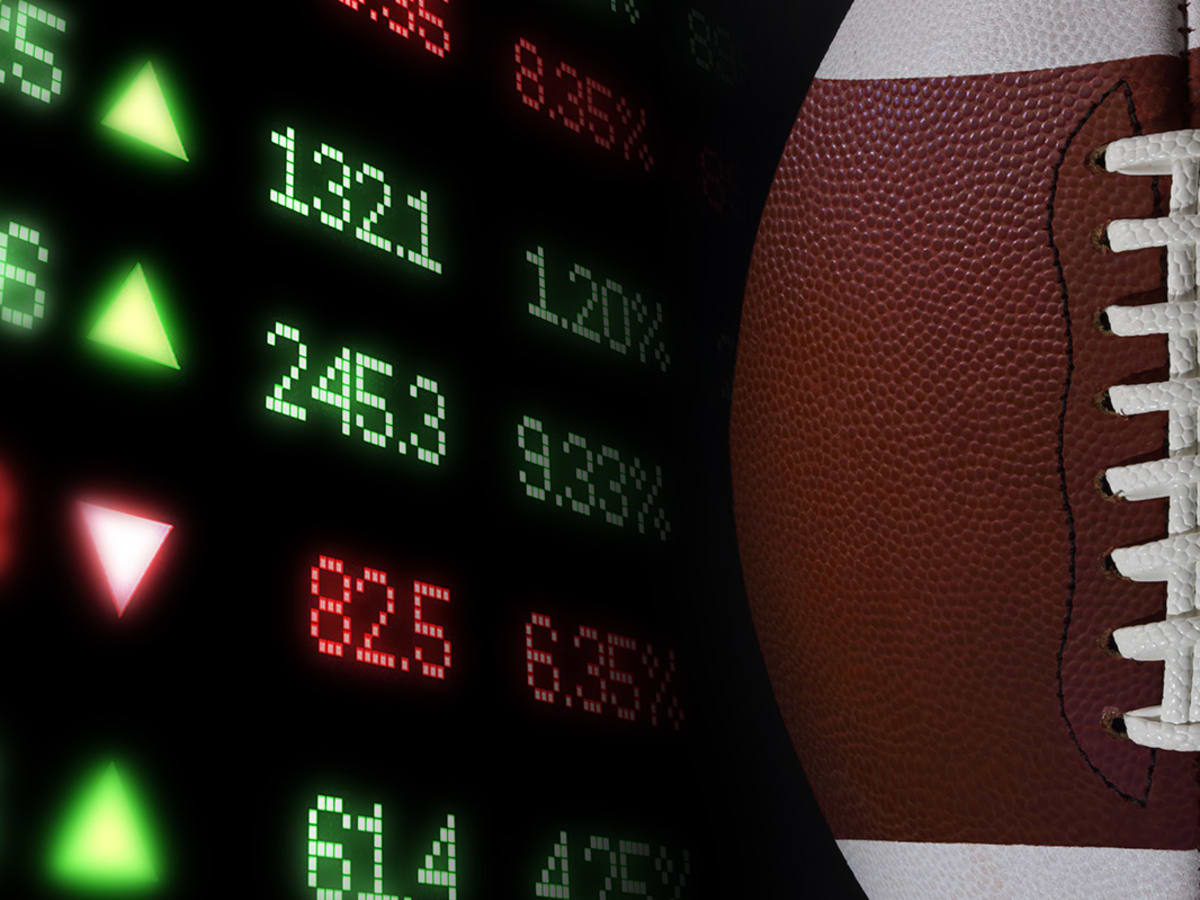First coined in 1978 by New York Times sportswriter Leonard Koppett, the Super Bowl Indicator goes like this: If an original National Football League (now the National Football Conference or NFC) team wins the Super Bowl. The stocks should rise for the rest of the year. But if the Super Bowl winner is an original American Football League (now the American Football Conference or AFC) team, stocks should fall.

Briefly put, that means as long as you have more of a rooting interest in your 401(k) or IRA than you do either of Sunday’s competitors. You should be pulling for the NFC’s Los Angeles Rams over the AFC’s Cincinnati Bengals.
However, going by more recent results, investors might want to cheer for a little less Hollywood and a lot more Skyline.
What Is the Super Bowl Indicator?
The Super Bowl Indicator is a nonscientific stock market barometer. The premise of the Super Bowl Indicator is the theory that a Super Bowl win for a team from the National Football League’s American Football Conference (AFC) foretells a decline in the stock market (a bear market) in the upcoming year.
Conversely, a win for a team from the National Football Conference (NFC), as well as teams from the original National Football League (NFL)—before the merger of the NFL. The American Football League (AFL) in 1966—means that the stock market will rise in the coming year (a bull market).
The indicator suggests stocks advance for the full year when the Super Bowl winner has come from the original National Football League (now the NFC). But when an original American Football League (now the AFC) team has won, stocks decline.
Now LPL is “the first to admit that this indicator has no connection to the stock market, but ‘data don’t lie: The S&P 500 Index has performed better, and posted positive gains with greater frequency, over the past 55 Super Bowl games when NFC teams have won.”
Super Bowl Indicator
The Super Bowl Indicator originally postulated that stocks will rise for the full year if an NFC team wins the “big game,” and fall if the AFC wins. As of 1978, when Koppett introduced the supposed market signal, it had a completely accurate track record. (With a big fat asterisk in that the Pittsburgh Steelers, an AFC team, were counted as an NFC team because the franchise’s origins were in the original NFL.)
Since then, the Super Bowl Indicator hasn’t been quite as laser-precise, but generally, it has maintained its NFC-good, AFC-bad trend.
Ryan Detrick – chief market strategist for independent broker-dealer LPL Financial, and lifelong “Bungles” fan – is as biased a source as you could find on the subject. But even he admits that the “data don’t lie”: Over the past 55 Super Bowls in which the NFC team prevailed, “the S&P 500 Index has performed better, and posted positive gains with greater frequency,” Detrick says.
As of Feb. 2021, the indicator has been correct 40 out of 54 times, as measured by the S&P 500 Index. This is a success rate of 74%.6 It failed to predict a down market in both 2016 and 2017, when the Denver Broncos and New England Patriots, both original AFC teams, won Super Bowls.7 Also of note: In 2008, despite the New York Giants (NFC) winning the Super Bowl, which supposedly indicated a bull market, the stock market suffered one of the largest downturns since the Great Depression.
The Super Bowl Indicator is an example of purely fun sports writing. There is no real connection between a football team in a particular league and the U.S. stock market; so, any relationship that can be drawn between the two is purely a coincidence. What began as an interesting column many decades ago continues to make a new headline at least once a year.
Who’s playing in Super Bowl LVI?
The Los Angeles Rams and Cincinnati Bengals are playing in Super Bowl LVI.
Where is the Super Bowl being played this year?
The Rams are actually the “away” team in this year’s big game and will be wearing white jerseys despite playing in their home stadium in Los Angeles. In fact, the Super Bowl host will be playing in the game for the second straight season.
The Tampa Bay Bucs made history last year becoming the first team ever to host a Super Bowl and play in it.
Tweets about Super Bowl
As one person on Twitter noted, a “superstition is only stupid if it doesn’t work.”
A superstition is only stupid if it doesn’t work #TakeTheCrown
— Connor English (@CEng1ish) October 28, 2015
#SuperBowl from a traders perspective.: The #Rams are much stronger in the trenches which is akin to market structure. But the #Bengals have Joe Burrow, which is like the brand new shiny indicator with tons of promise
— Trader’s Landing (@TradersLanding) February 13, 2022
👉Leonard #SuperBowl indicator
1967 – 2021Winner from #NFC , #stonks UP
Stock mkt up 80% of time ( Avg. Return +10.8% )Winner from #AFC , #stockmarkets DOWN
Stock mkt up 65% of time ( Avg. Return +7.1% )First 27 SB were pin accurate (1967-1994)
Credit : @andreijikh pic.twitter.com/szvsP37l1S
— High Stakes (@KshitizBisht) February 13, 2022











